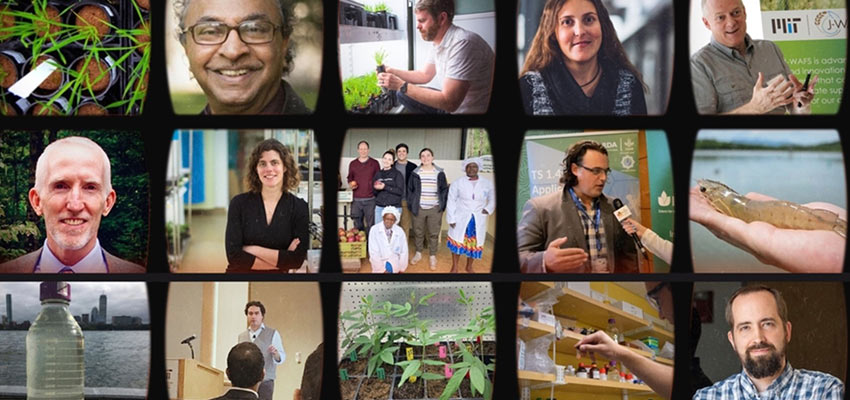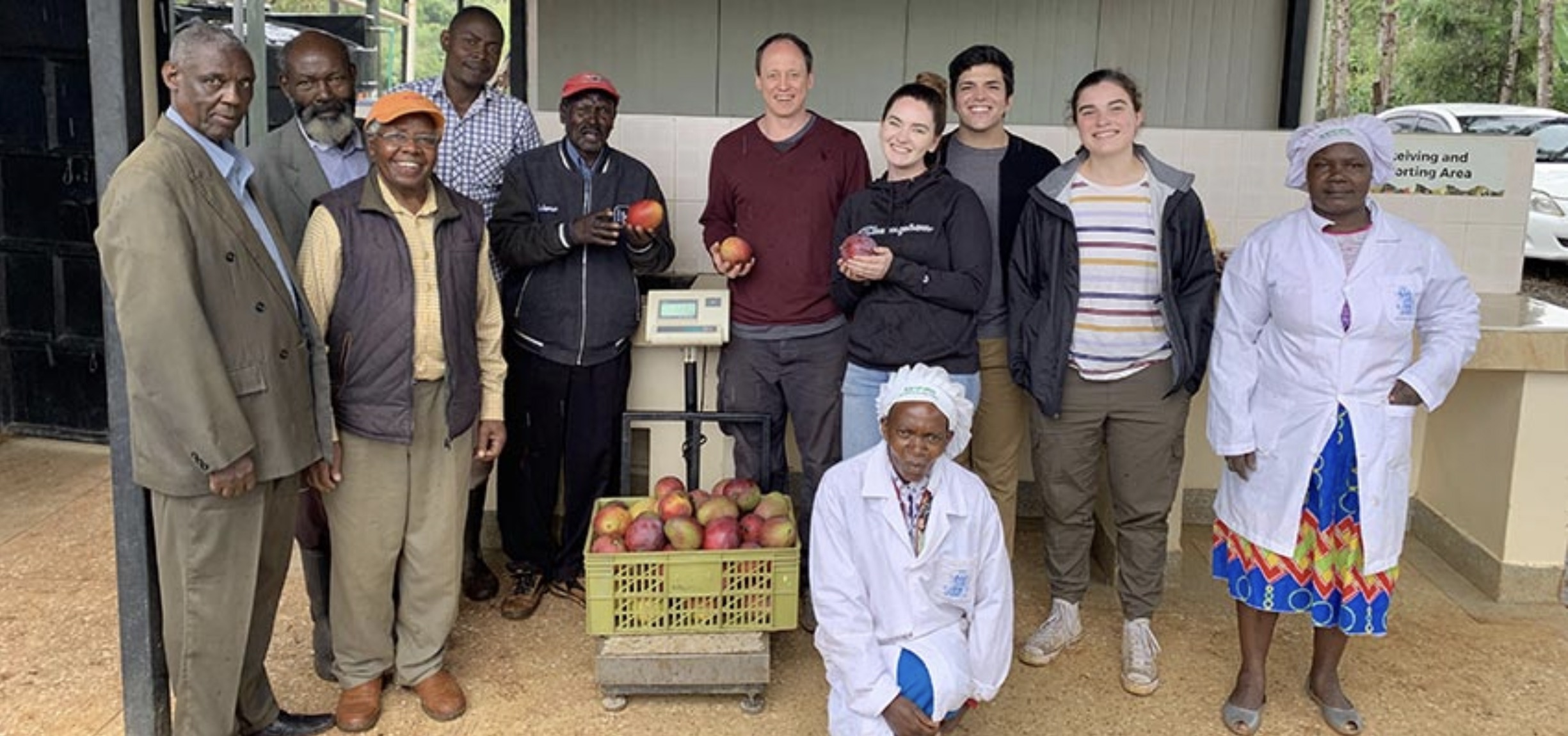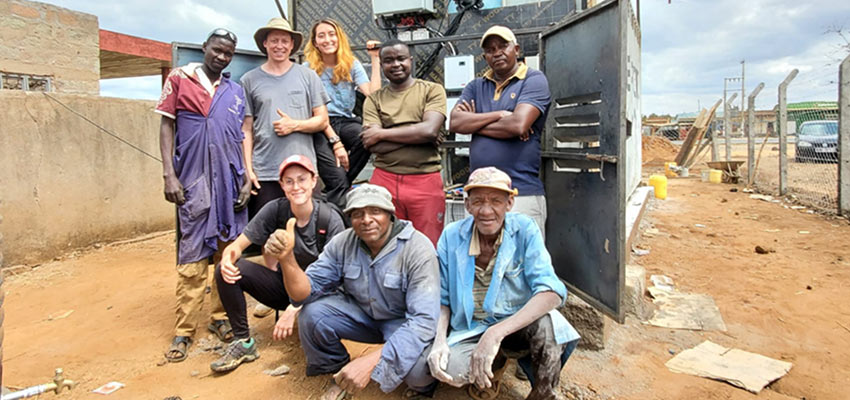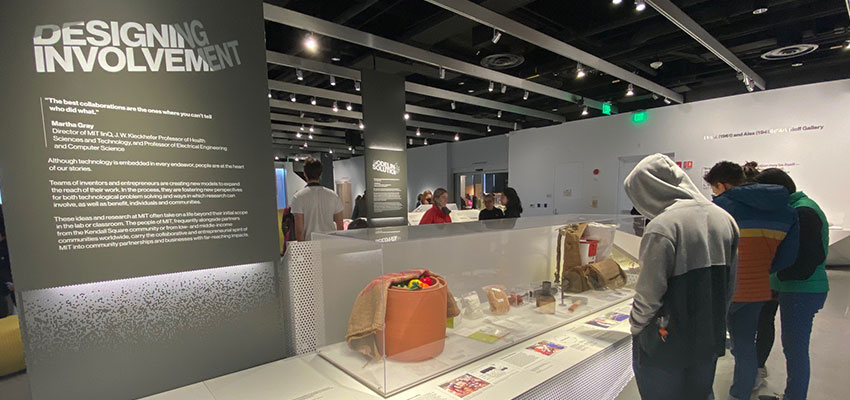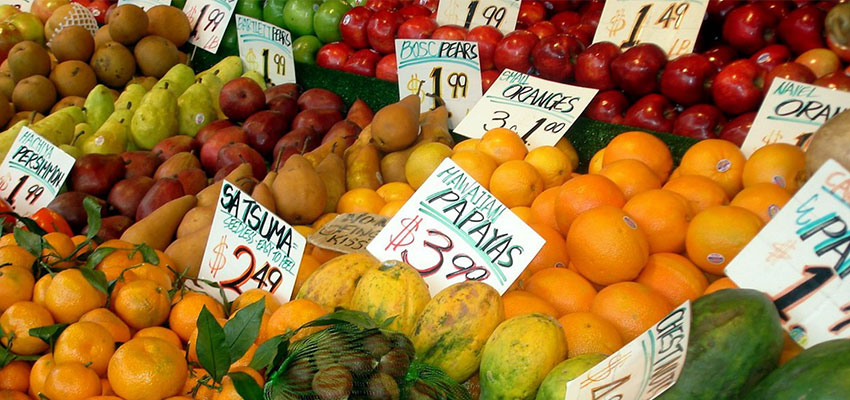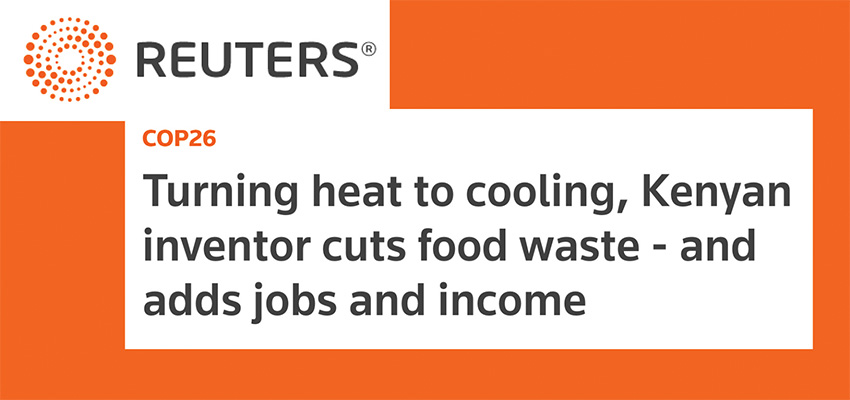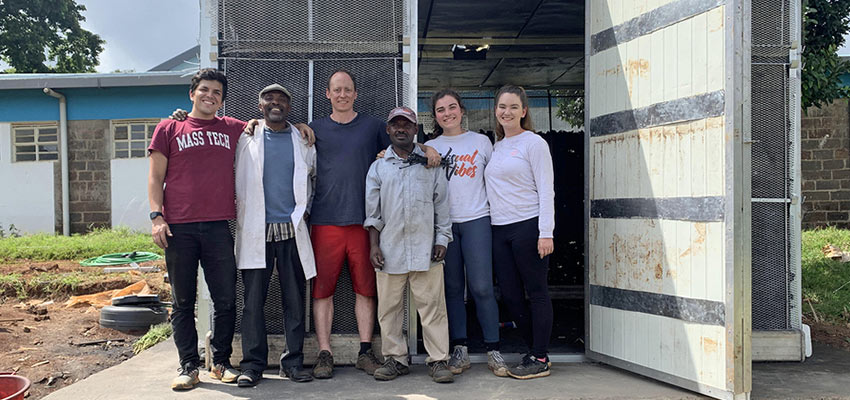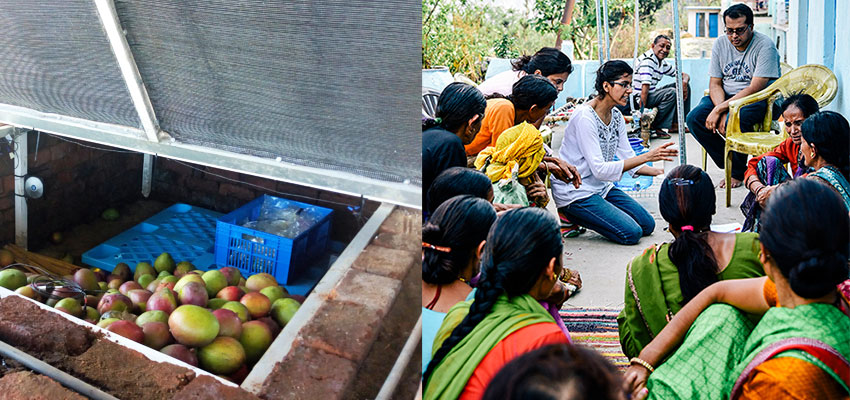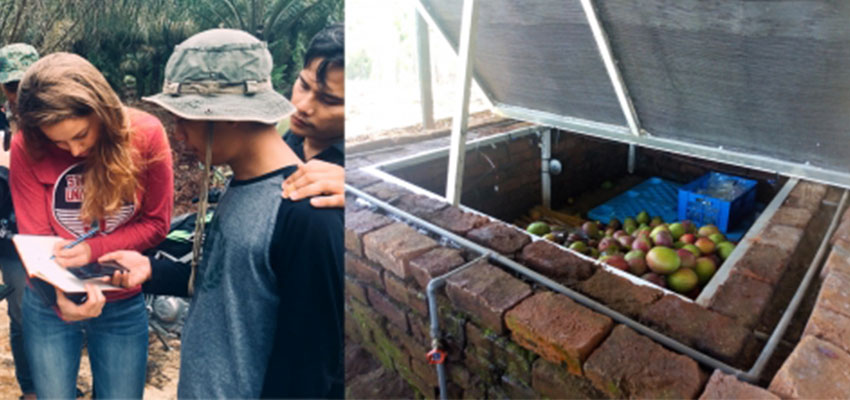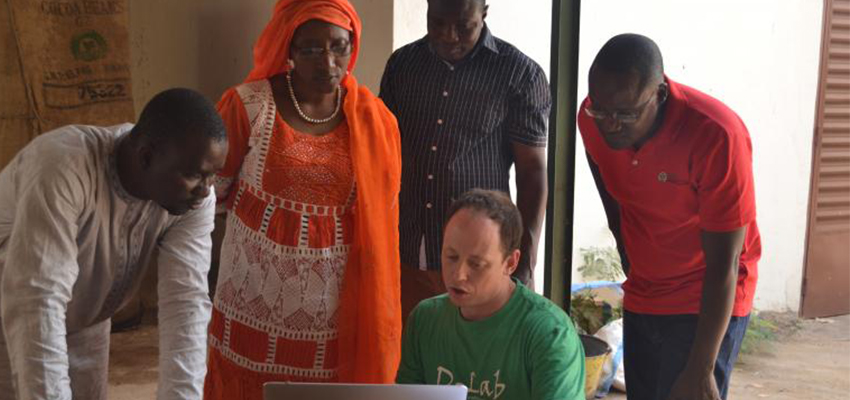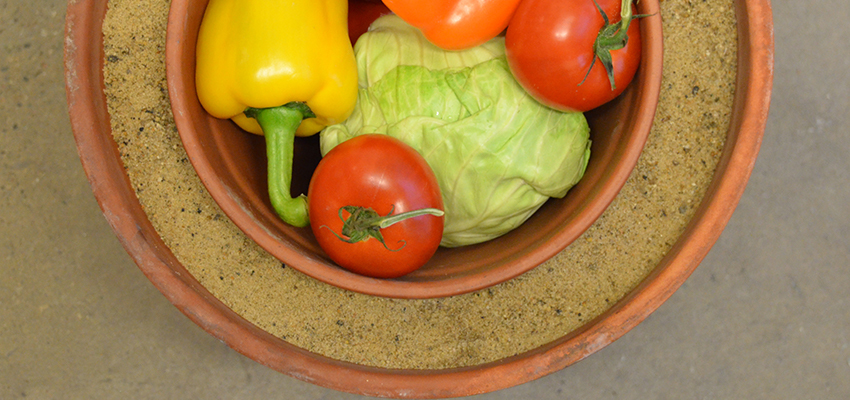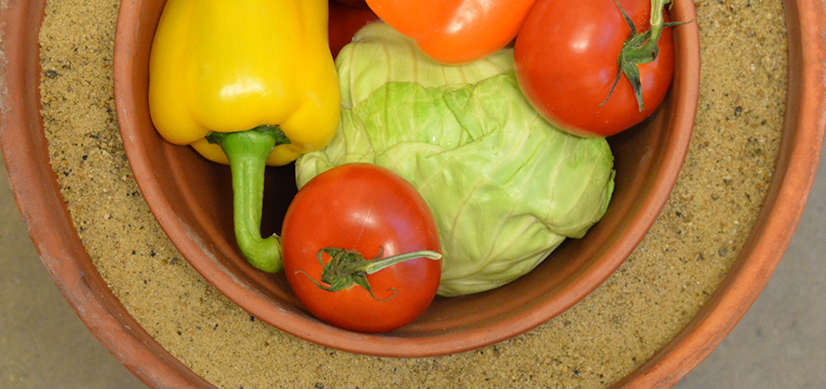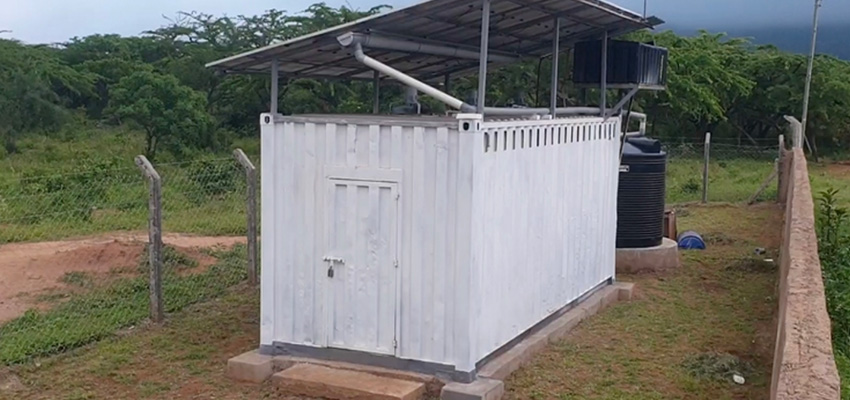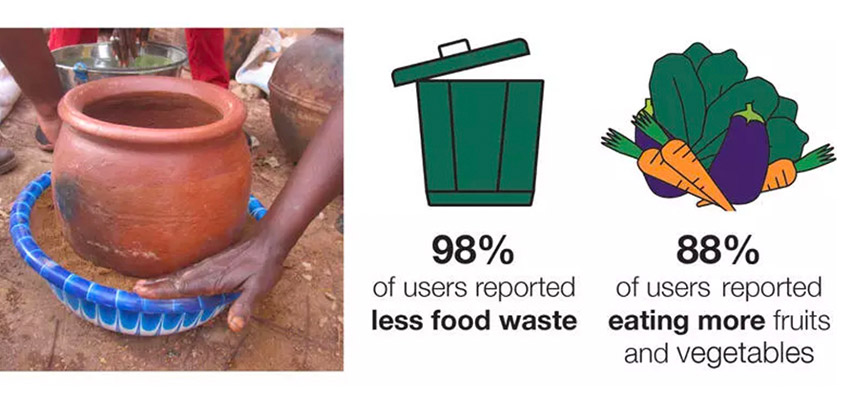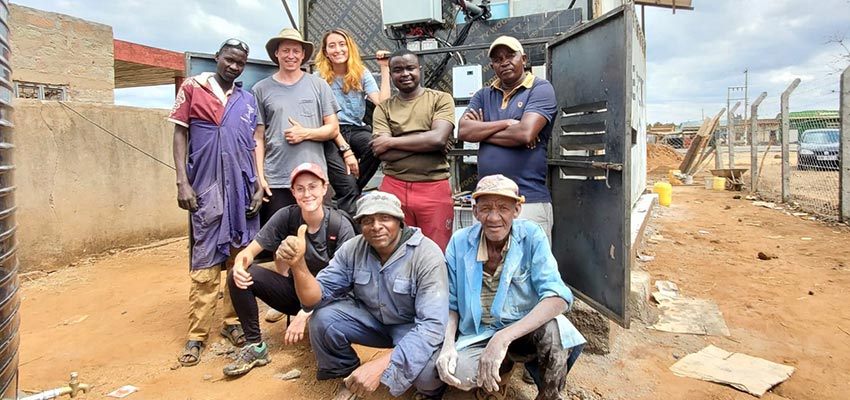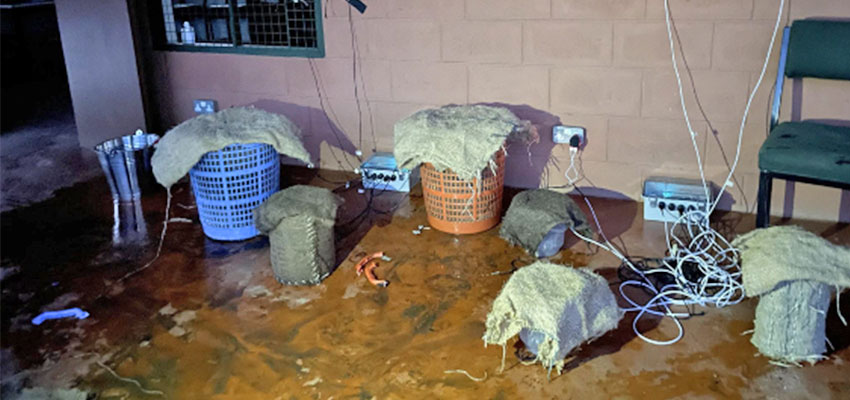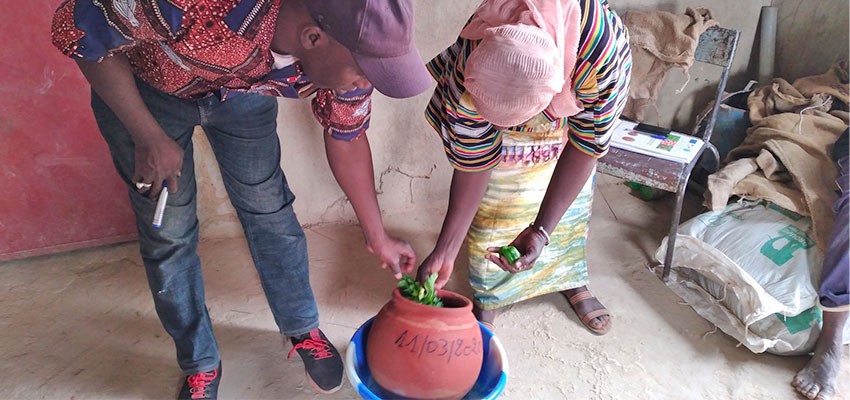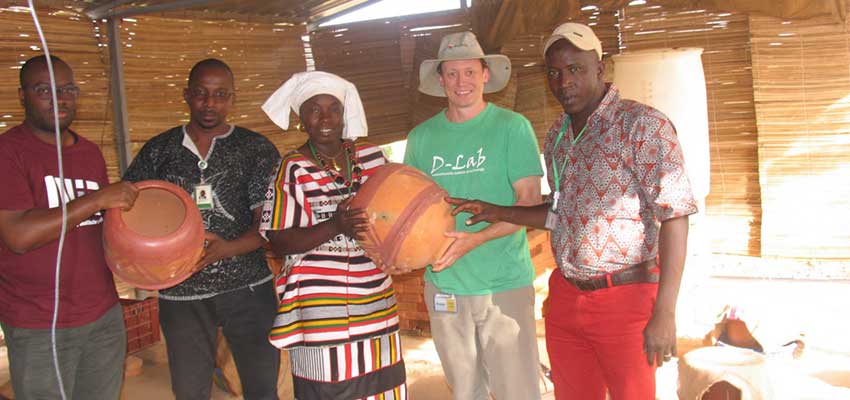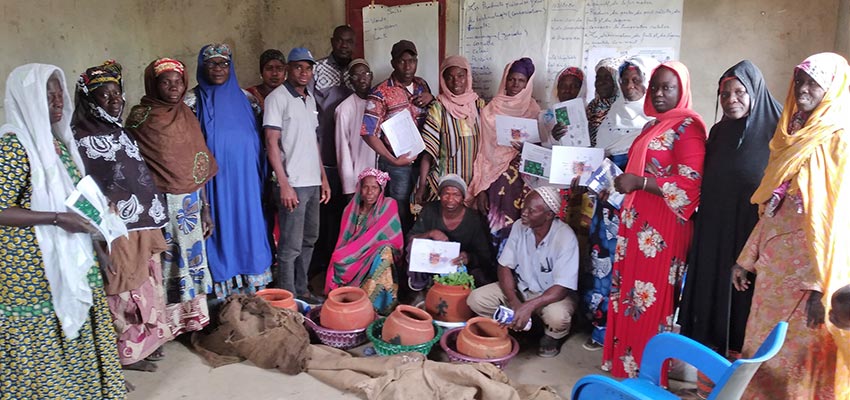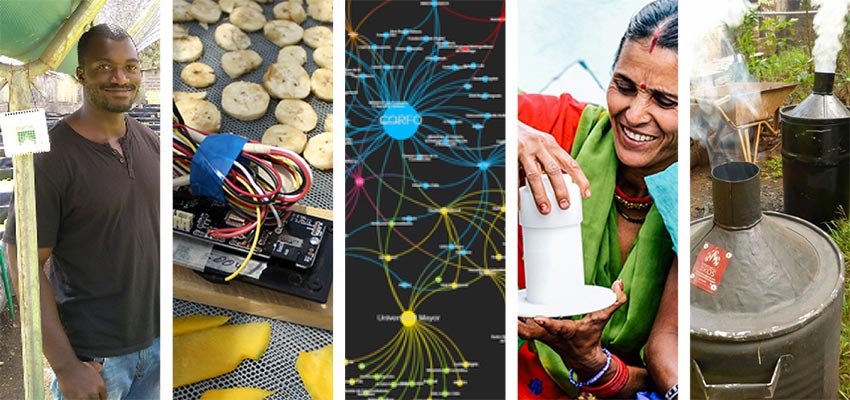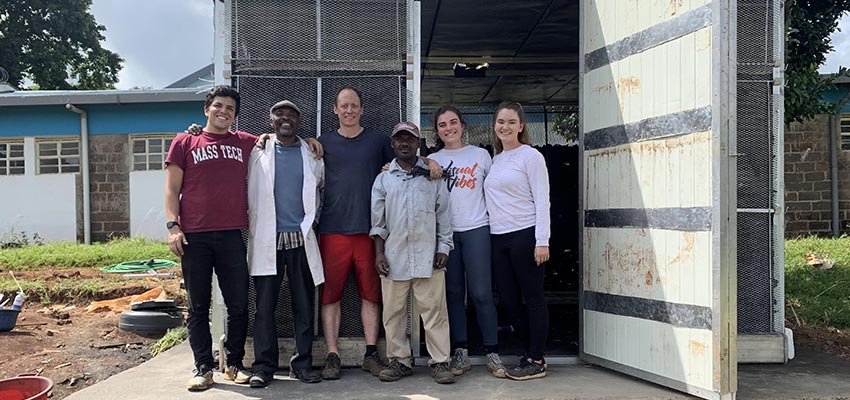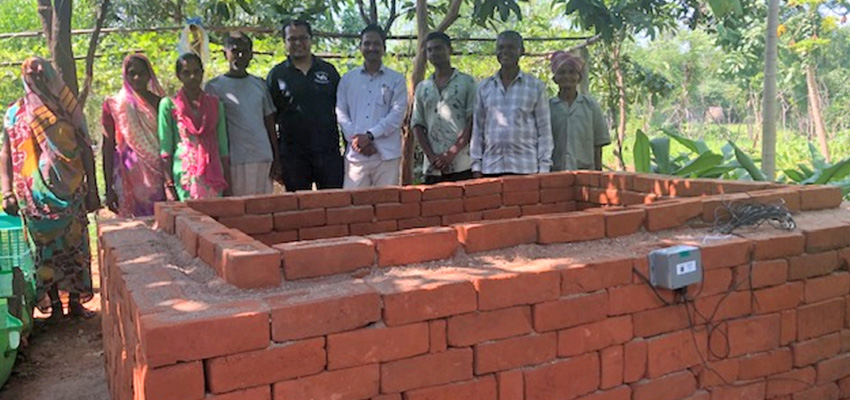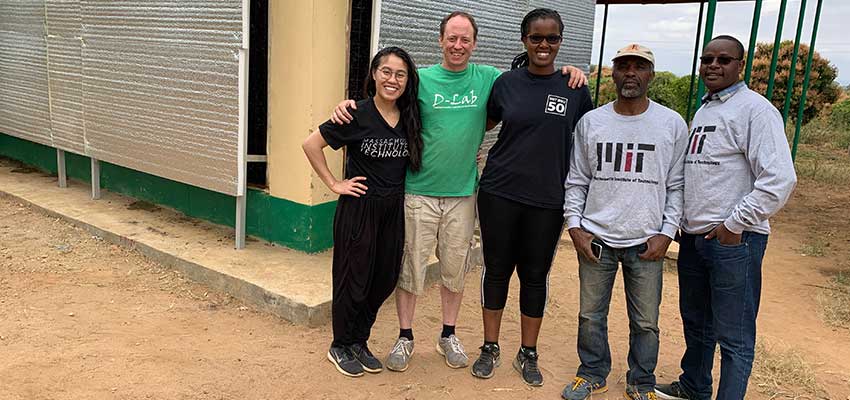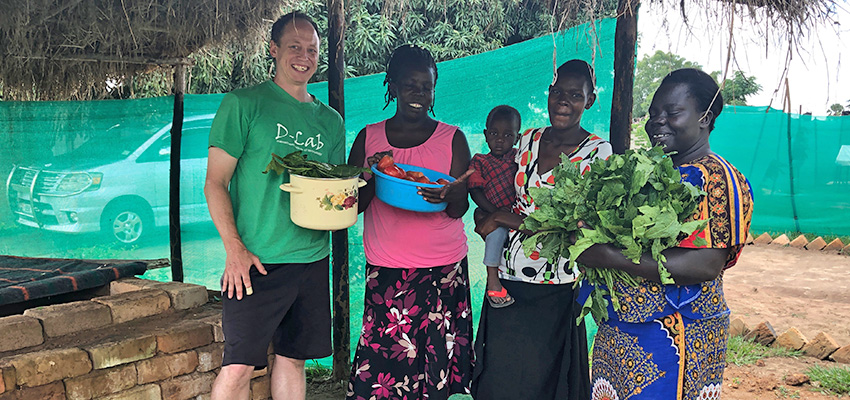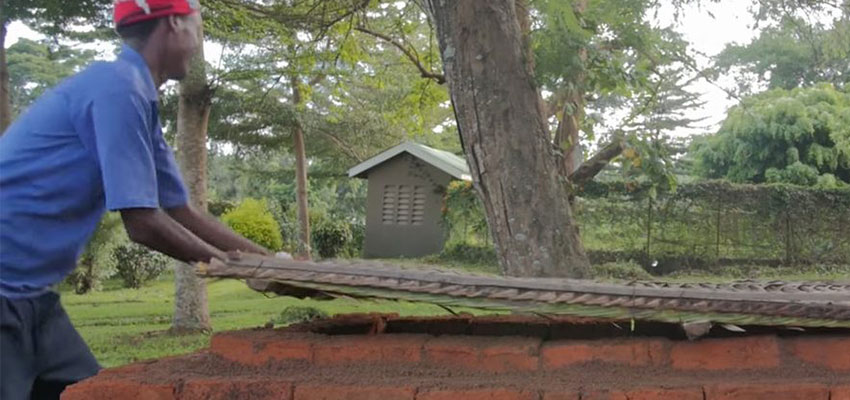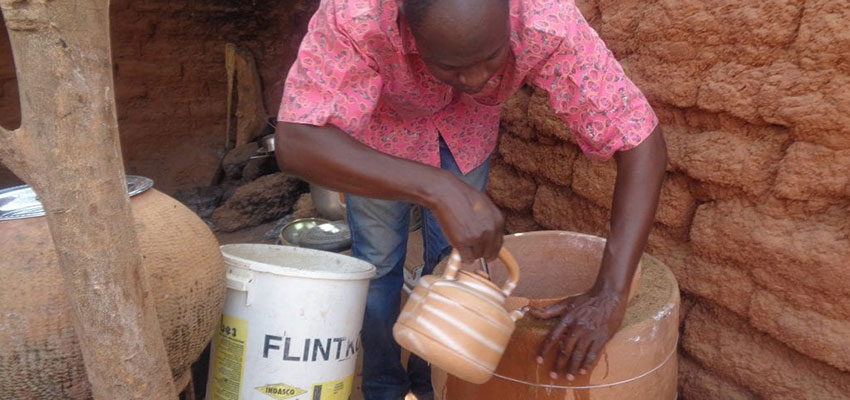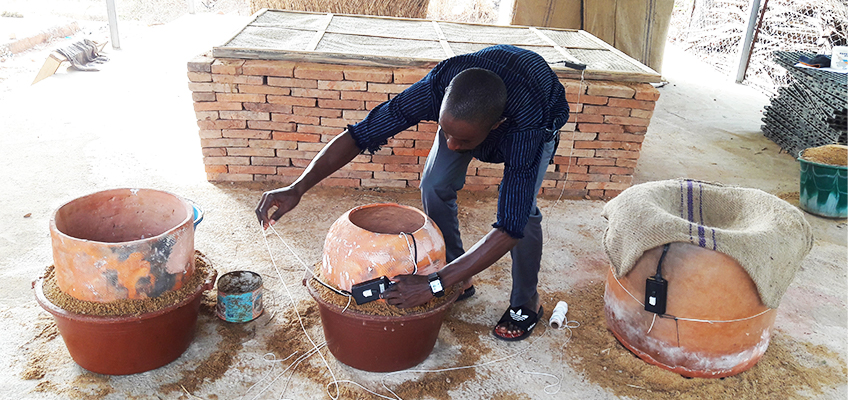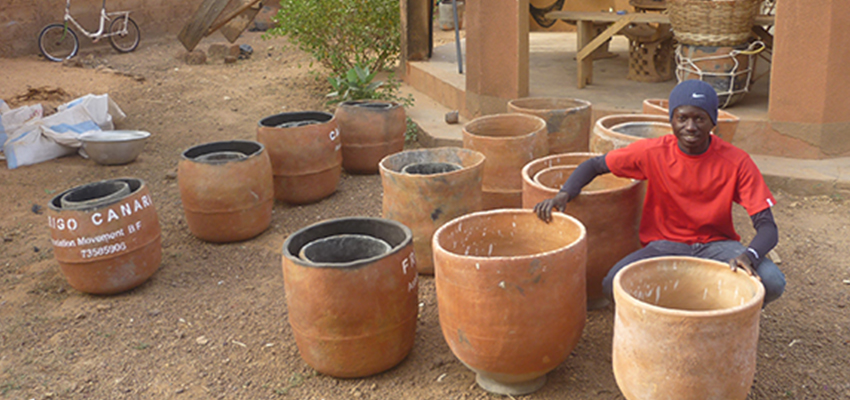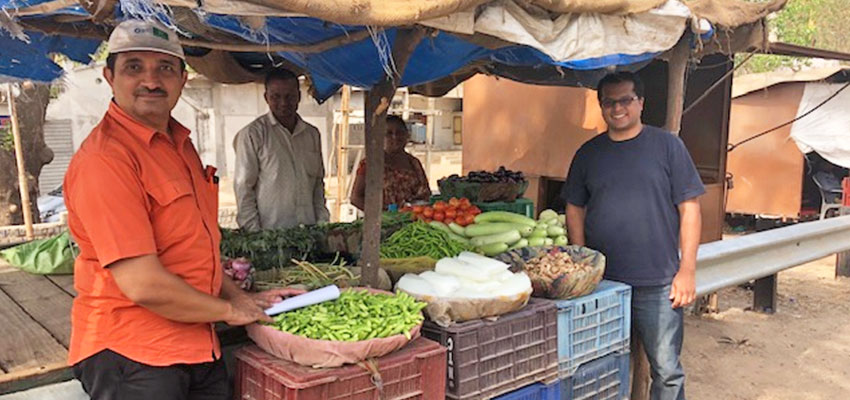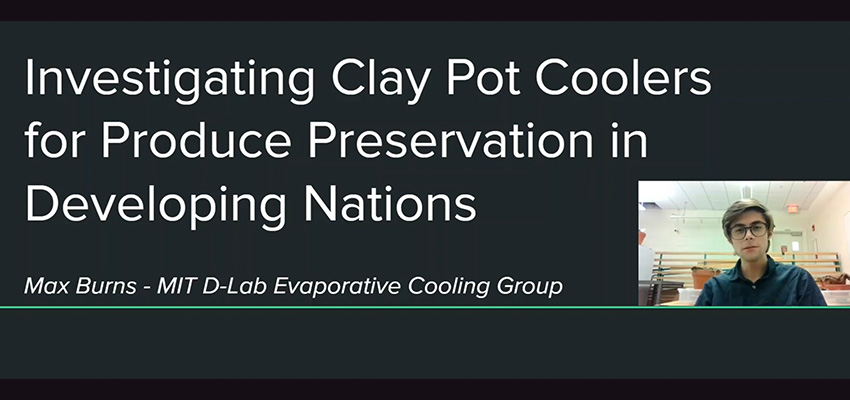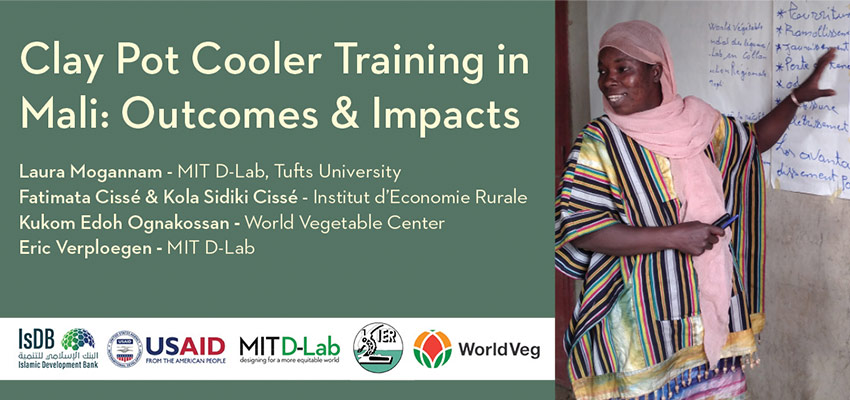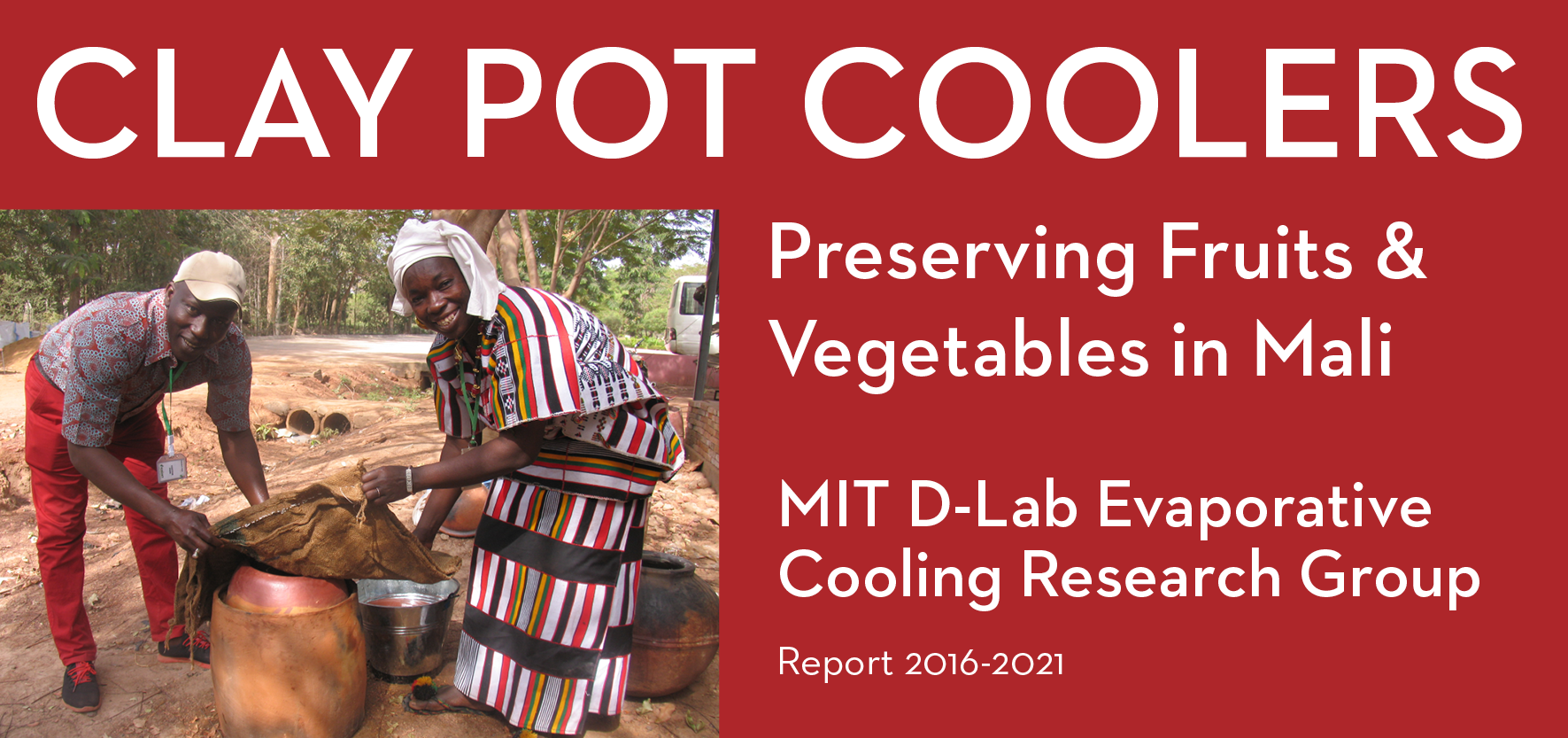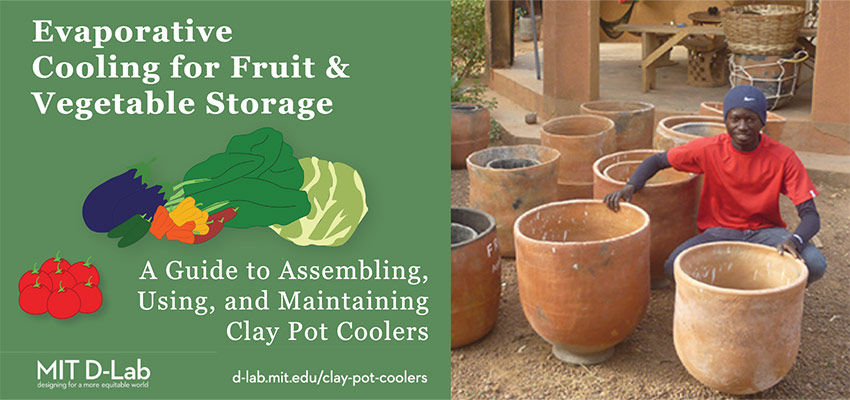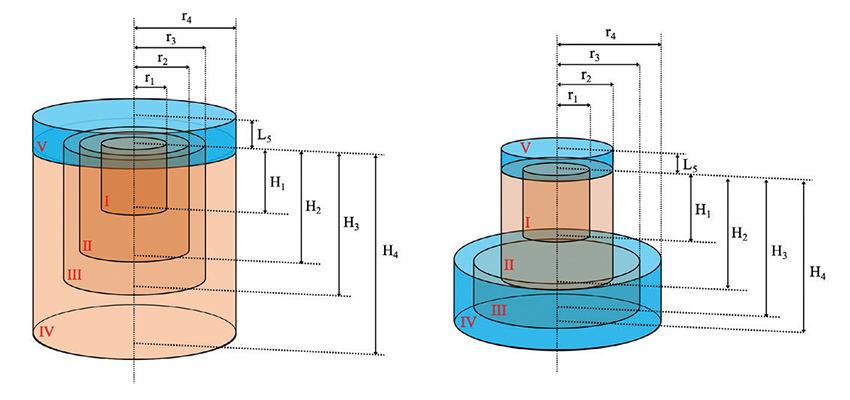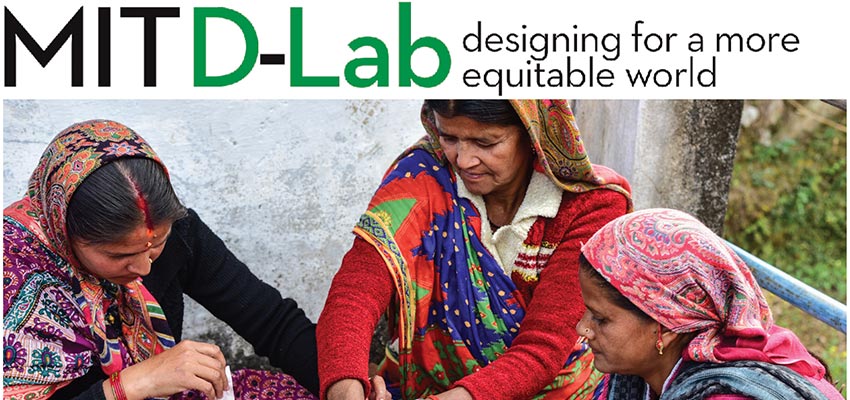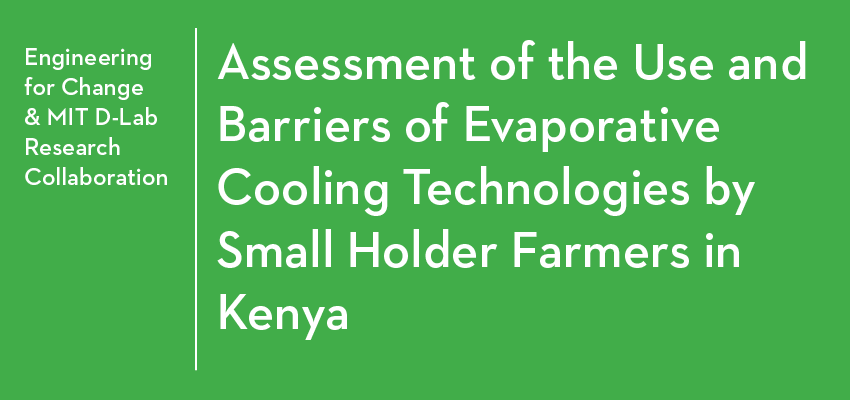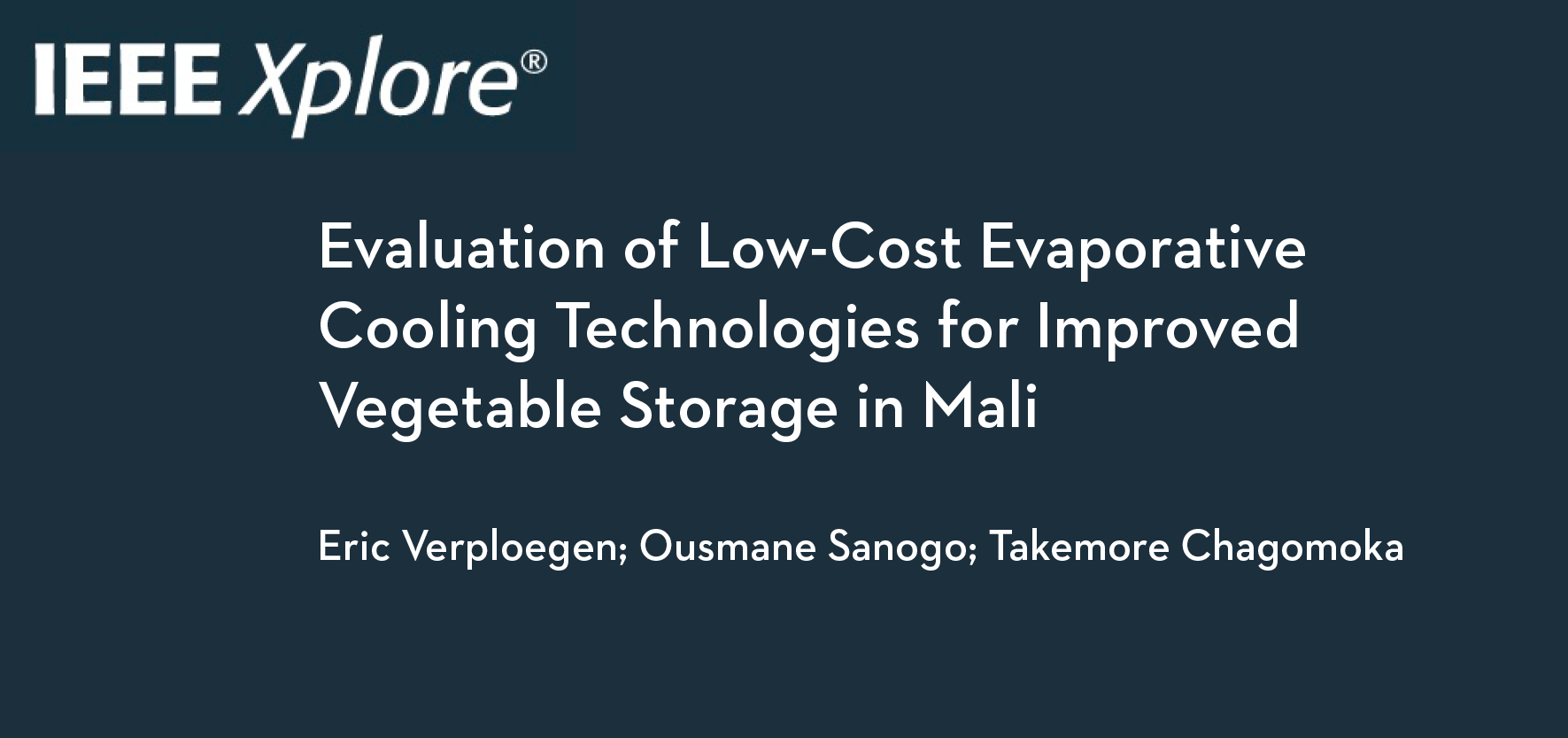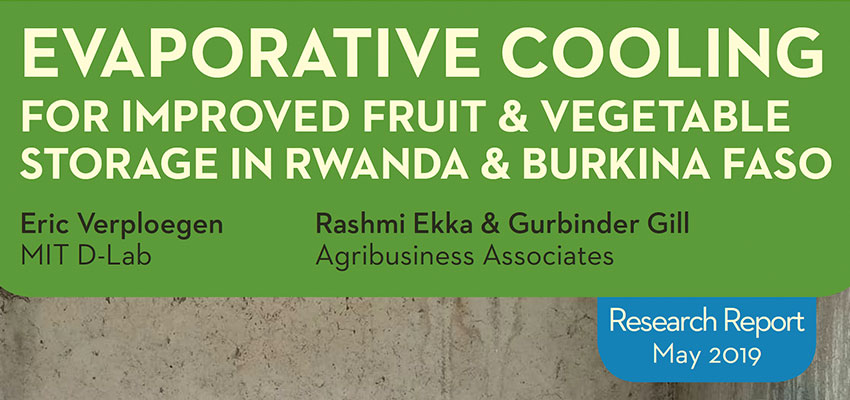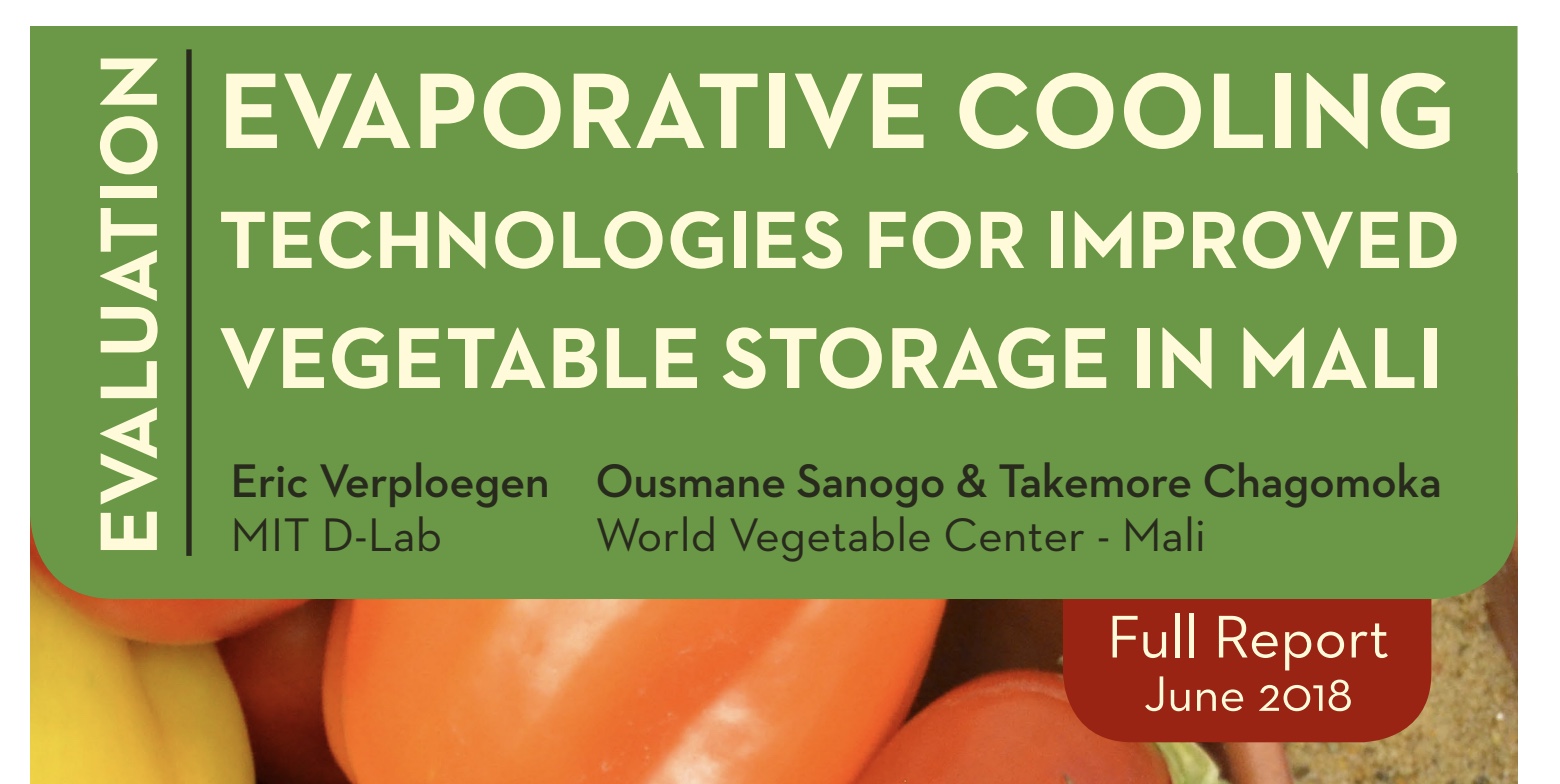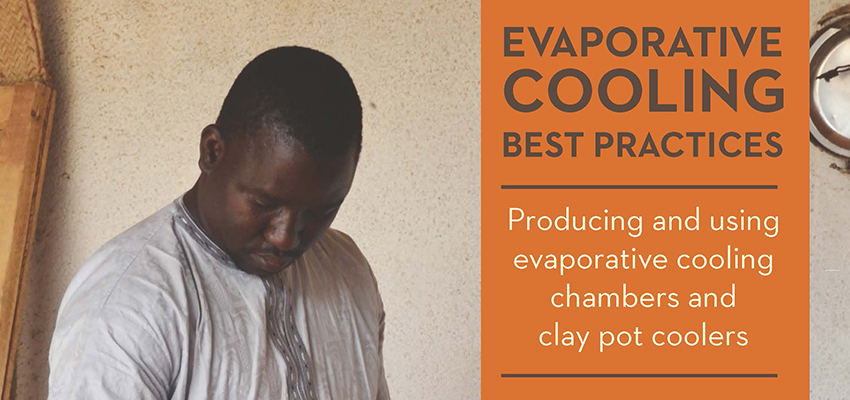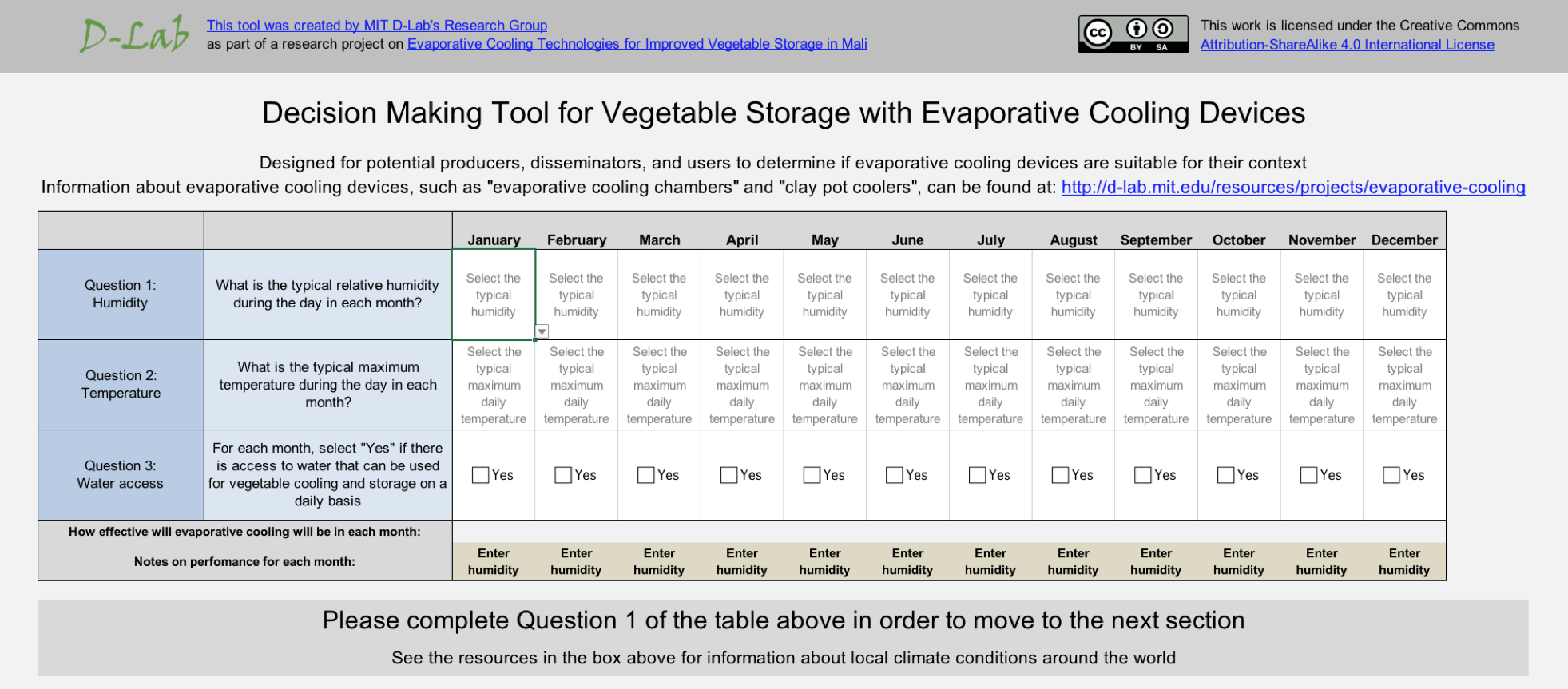
Evaporative cooling devices have promise for helping small-scale farmers, market vendors, and families to store and preserve vegetables.
Practical and affordable storage technologies have the potential to prevent food loss, strengthen the perishable food supply chain, and create opportunities for additional income generation. Evaporative cooling devices are simple and inexpensive ways to keep vegetables fresh without the use of electricity. These devices function according to a basic principle called “evaporative cooling,” where the evaporation of water from a surface removes heat, creating a cooling effect.
Evaporative cooling can improve vegetable storage shelf life by providing a stable storage environment with low temperature and high humidity, which reduces the rate of respiration and water loss and spoilage in most vegetables. The improved storage environment can have positive impacts including reduced post-harvest losses, less time spent traveling to the market, monetary savings, and improved nutrition.
Major efforts have included:
- Scaling a clay pot cooler training program
- Based on design, performance, and user research
- Developed in Mali with the World Vegetable Center and Institut d'Economie Rurale (IER)
- High rates of adoption and positive impacts reported by users
- Focus is on scaling the program with new partners and in new locations
- Development of an open-source fruit and vegetable cooling chamber
- Uses forced-air evaporative cooling
- Based on a used shipping container
- Pilot chambers active in India and Kenya
- Open-source designs available here
CoolVeg: MIT D-Lab spinout
As of 2023, this work has been spun out by former MIT D-Lab staff research engineer Eric Verploegen in the form of an organization, CoolVeg, which serves to promote and disseminate evaporative cooling technologies.
Resources and Reports
Summarizes the activities of the clay pot cooler project in Mali between 2016 and 2021. This ongoing project, in collaboration with the World Vegetable Center and Institut d’Economie Rurale (IER), has consisted of multiple phases, each focusing on a different technical and social aspect of this technology.
More information
MIT D-Lab evaporative cooling Spinout: CoolVeg
MIT D-Lab evaporative cooling publications, etc: See below
Contact
Eric Verploegen, MIT D-Lab Affiliate


